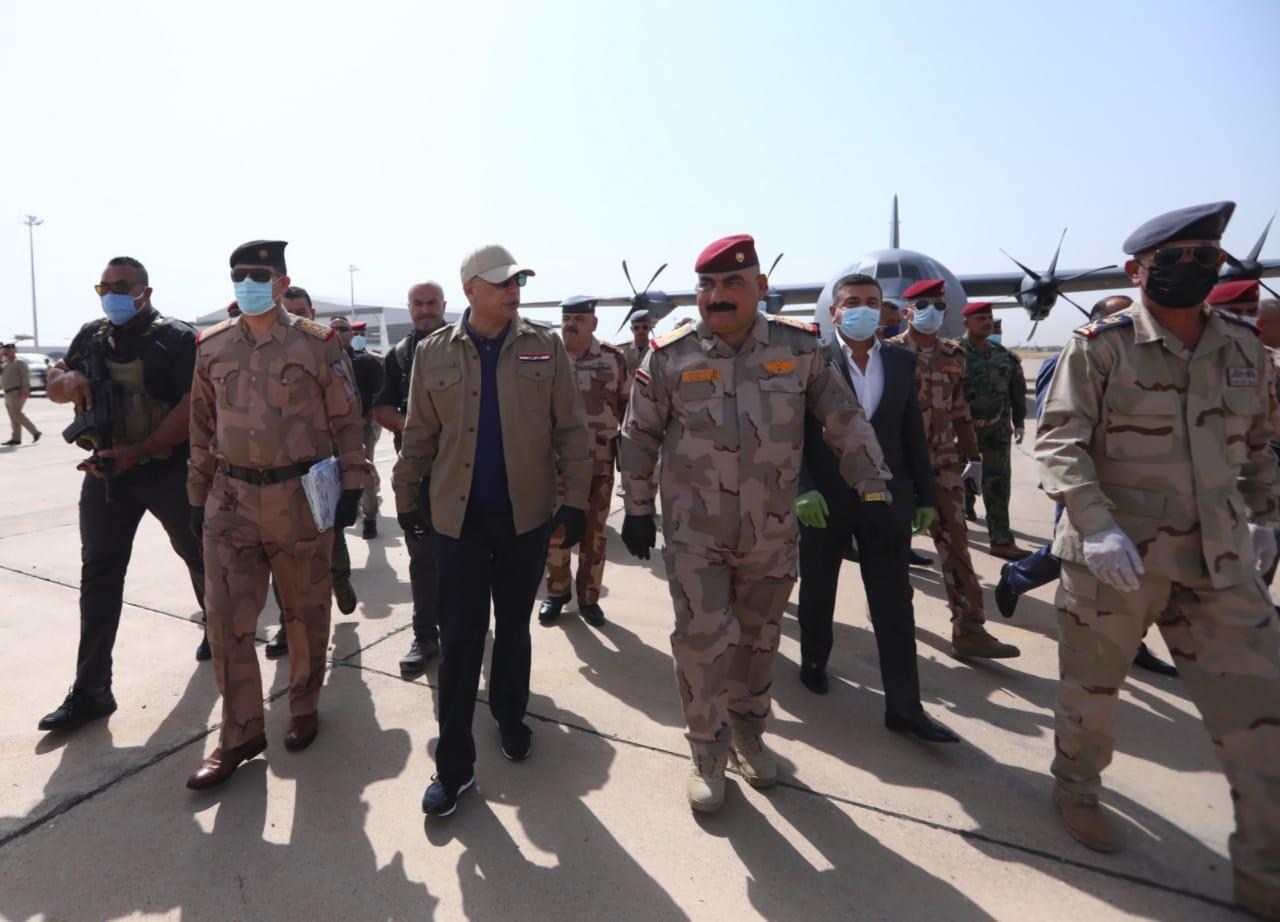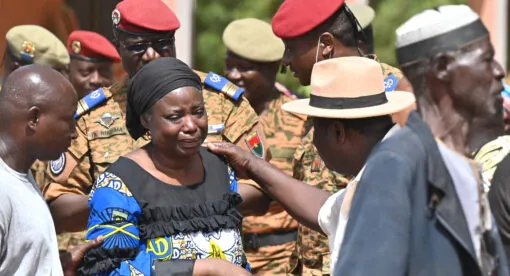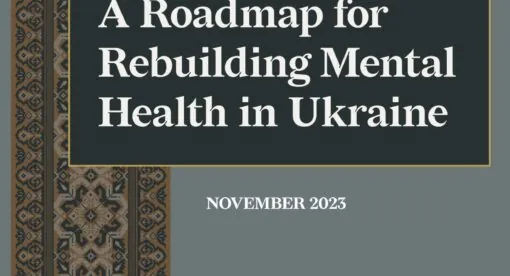On July 6, 2020, Dr. Husham al-Hashimi was killed by gunmen outside his home in the Iraqi capital Baghdad. He had submitted a series of articles to the Newlines Institute before his death, and we will publish those articles throughout the summer.
Editor’s Note: This Net Assessment is part 14 of “ISIS 2020” – a series of briefings about the current status of the Islamic State by authors from different parts of the region. It is published by the Newlines Institute’s Nonstate Actors and Geopolitics (NaG) program. Parts one, two, three, four, five, six, seven, eight, nine, ten, eleven, twelve, and thirteen were released weekly since April 28.
The surge in terrorist incidents and the spread of violence in areas near liberated cities in northern and eastern Iraq the first half of this year drew the attention of the government of Prime Minister Mustafa al-Kadhimi. The new government concluded that increasing instability undermines coexistence in society, weakens stability, hinders the return of the internally displaced people (IDPs), and aggravates an already tense situation between locals and the PMF forces controlling regions they are not native to. The rise of surprise ISIS attacks and the increasing number of raids on remote villages and barracks belonging to the Popular Mobilization Forces (PMF) and tribal mobilization forces in the last four months claimed the lives of dozens of Iraqis. As a result of this realization, al-Kadhimi assembled a team to reconfigure the country’s counterterrorism strategy.
The author was privy to high-level conversations and details that informed the counterterrorism strategy set up by the new government in Iraq. During these conversations, it became clear to the appointed counterterrorism team that in order to stem the growth of ISIS, the following steps have to be done:
- Iraqi security forces need to revisit their plans for pursuing remnants of terrorist organizations given that terrorist groups managed to adapt and improve after their defeat.
- The government must take actions to address the political and social grievances of the inhabitants of liberated areas.
- It is necessary to create an environment that rejects terrorism and radicalism, which requires identifying the root causes of radicalization.
Since the launch of the anti-ISIS military campaign Heroes of Iraq on February 12 of this year, Al-Kadhimi expressed his support of the strategy of “smoking the fox out of its den.” The strategy has since been adopted by Counterterrorism Services Chief of Staff Lieutenant-General Abdel-Wahab al-Saidi, Minister of Interior Uthman al-Ghanimi, Iraqi Army Chief of Staff Lieutenant-General Abdul-Amir Yarallah, and Joint Operations Commander Lieutenant-General Abdul-Amir Al-Shumari.
That team strongly believes in the importance of stopping ISIS’s remnants and reducing their threat to the lives of Iraqis, but it must be careful not to be under the illusion that this is merely a security operation. Defeating ISIS requires solving the issues of security, social justice, and returning IDPs. It is impossible to end a phenomenon like terrorism without addressing its root causes.
On 7 May 2010, the Iraqi National Security Council had a meeting that revealed a division within its members along three distinct approaches.
One approach, led by the Joint Operations Command, stressed the importance of combating terrorism and striking back against any violence or use of force. The second approach, backed by the National Security Council, preferred the use of smart power — a combination of soft power and force — that addresses the root causes of violence and terrorism while still deploying force in the form of preemptive operations. The third approach drew a distinction between traditional military campaigns that were often deployed to hunt ISIS remnants and intelligence operations that aim to foster trust between security and regional forces, on the one hand, and the people in liberated areas, on the other. This last approach was backed by intelligence agencies and military and security information bureaus.

In order to avoid a stalemate amid that division, the decision was made to implement the strategy of “smoking the fox out of its den”, which is based on nine imperatives:
The first one, presented by Major General Gerald Strickland, the Deputy Commander-Strategy of Combined Joint Task Force, involves addressing the reasons that led to an increase in terrorist incidents through intelligence work based on information provided by local residents and tribal and regional mobilization forces. This also requires launching special and precision operations to identify targets and pursue them with the support of the International Coalition in order to overstretch ISIS infrastructure and deplete its human resources.
The second imperative, be done in cooperation with the Sunni Endowment and the Ministries of Education and Higher Education, entails measures to prevent the activation of sleeper cells and identifying hardline takfiri, or excommunication, ideology and fighting it.
The third requirement is to build the capacity of Iraqi Special Forces, restructuring the armed forces, and repairing the structure of the PMF. To achieve these objectives, there is a need for continuing support from the International Coalition, NATO, and friendly forces. That view was presented by Lieutenant General Uthman al-Ghanimi, Iraqi Minister of Interior, and the former Iraqi Army Chief of Staff.
The fourth imperative is to safeguard human rights and the rule of law. These principles are the cornerstone to creating an environment that rejects terrorism, reinstating trust between the security forces and citizens, and strengthening democracy and stability. This view was advocated by the European Union Ambassador to Iraq Martin Huth.
Fifth, Lieutenant General Saad al-Alaq, the chief of military intelligence proposed the idea of offering incentives and rewards to encourage reporting on terrorist activities and providing information to help uncover those activities. The idea also involved honoring those who work in the counterterrorism field and publishing pictures of wanted criminals in the media.
The sixth imperative for the counterterrorism strategy is to encourage ISIS “remnants” to surrender to Iraqi courts with the help of their village leaders (mukhtars), tribes, and families while guaranteeing a fair trial and improving security and stability for all kin, given that justice is one of the key elements in societal security.
The seventh principle is to strengthen the role of educational institutions and community centers specialized in combating radical ideology in order to resolve the issue of returning IDPs, including the integration of those who returned, and stressing the importance of religious organizations in presenting a clear understanding of coexistence, tolerance, and acceptance of others. Those organizations play a significant role in counterterrorism with three key functions: sermons, religious guidance and teaching, and issuing fatwas. Additionally, education material and curricula can be modified to teach renewed religious discourse focusing on the jurisprudence of moderation. That was the view of professor Hisham Dawoud, advisor to the prime minister on reconciliation and national dialogue matters.
The eighth point is to dry out terrorism resources: breaking the links between terrorism, money-laundering, weapons, and smuggled oil, drugs, antiquities, goods, and narcotics; securing the borders; freezing terrorists assets; combating money-laundering crimes; monitoring transactions; and monitoring funding to charities and NGOs. That opinion was presented by Lieutenant General Abdul-Amir al-Barr, Iraqi Army Chief of Staff.
The ninth and final imperative is to execute preemptive operations by the counterterrorism force based on verified intelligence collected from local residents. Those operations are part of highly classified security measures aimed to reinstate trust between the security forces and citizens by preventing terrorism incidents.
Those preventive measures are especially important as they aim to foil terrorist operations before they occur by conducting preemptive special strikes. Such operations require accurate information from regional information offices since they represent the first line of defense against terrorist attacks. Combating terrorism hinges on the security forces‘ success in collecting enough information in a timely manner, as well as the surprise element and accurate air support from the International Coalition.
Preemptive special operations are a key tool tool of this strategy: They reduce human and financial losses, especially when compared to other operations done by the military and security forces that require extensive effort, spending, and time, and often produce limited results and present a risk to the lives and properties of civilians. That opinion was presented by Lieutenant General ‘Abd-al-Wahab al-Sa‘idi, the commander of counterterrorism services.

Additional aspects of the strategy include the following:
- Having the media play a significant role in exposing those who support radicalism and terrorism, unmasking their malicious goals while at the same time amplifying opinions that criticize and oppose terrorism and emphasizing the morals and principles of Iraqi cultures. The media must also strike the right balance between reporting on terrorist attacks and avoiding extensive reportage that could incite fear in society. Prime Minister Mustafa al-Kadhimi presented this view.
- Activating the role of committees focused on coexistence and national dialogue and providing them with different economic, social, and political means to achieve their objectives.
- Broadening the dialogue to include different segments of society, especially voices of dissent, to show them the right path and persuade them to adopt dialogue as a solution.
- Disarming tribes and militias, particularly of their medium and heavy weapons, and creating a specialized security force along with a judicial committee to strengthen the judiciary’s role in counterterrorism and guaranteeing that operations are done in accordance with the law. NATO’s envoy in Iraq expressed this view.
- Strengthening community policing, which plays a key role in increasing communities’ trust in the armed forces and security and intelligence agencies, and implementing the principles of partnerships and solidarity with the public to create a safe environment. This must take into account that counterterrorism is a collective effort requiring maximum levels of cooperation and hard work by the specialized agencies and the community.
The new strategy reflects some of the best ideas put forth by counterterrorism experts. However, closing the gap between policy and action and ensuring the expected outcomes is the harder step. The underlying problems that allowed ISIS to get a foothold in the first place — particularly its ability to capitalize on sectarian and ethnic divisions and lack of public trust in the government — persist.

The government’s ability to implement this strategy is itself in question: Can it mobilize the necessary resources? Can it resolve tensions between PMF forces securing areas they are not from? How will it “repair” the structure of the PMF if it meets resistance from Iran? Can the government address the perceived lack of social justice, which ISIS plays on? Can the government ensure the return and integration of IDPs? The answers to these questions are not in a general strategy, but in the execution and how well the Iraqi Government, along with its key local and international partners, can overcome its past shortcomings.
Dr. Husham al-Hashimi was a Nonresident Fellow with the Newlines Institute. Dr. al-Hashimi was a leading security expert focusing on Islamist movements who advised the U.S.-led coalition to defeat the Islamic State. Al-Hashimi was also a member of the Iraq Advisory Council, a group of experts based in Iraq. He Tweeted at @hushamalhashimi.
The views expressed in this article are those of the author and not an official policy or position of the Newlines Institute.







